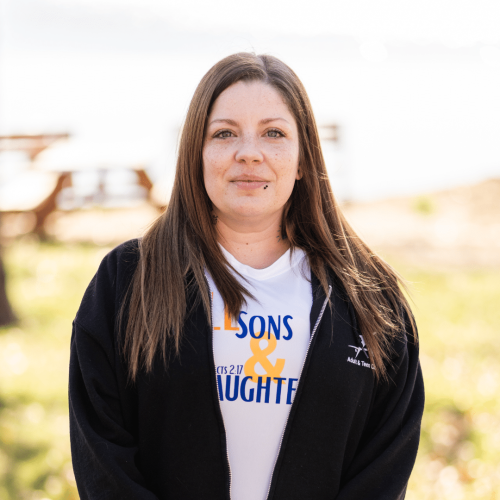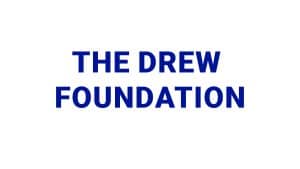Addressing a loved one’s difficult drug addiction journey can be an emotionally and mentally taxing experience. The potential failure of an intervention further compels family members to feel discouraged, overwhelmed and oftentimes hopeless in their attempts to help. Although unsuccessful interventions may initially seem like the end of this road, there is still hope that your beloved will eventually receive much-needed treatment for substance use issues.
Even when an intervention doesn’t work, it takes patience and faith to stay hopeful for a family member struggling with addiction. It’s up to their loved ones to show them love – no matter how hidden in the dark moments of disorder they may feel. Finding direction on what steps can be taken after failing an intervention helps alleviate some pain from such difficult times.
That’s where Adult & Teen Challenge of Central Canada comes in. We have multiple facilities for men and women with programs tailored for long-term, short-term or outpatient recovery. We incorporate evidence-based and faith-based principles of recovery to promote personal growth, self-awareness and dedication to furthering potential.

How to Maintain Boundaries Set During the Intervention
You can still make a difference in the lives of your loved ones, even if an intervention fails. Speak up and set strong boundaries that prioritize everyone’s safety – this is essential to arrest any further decline into chaos for all involved members of your family.
No one should ever worry about their safety, finances or mental health when dealing with a family member overtaken by drug abuse. Cultivate strong and healthy boundaries in your family so everyone can feel safe, secure, and free from the damaging effects of substance use. Come together to protect each other!
How to Prepare Yourself for a Poor Reaction
Establishing boundaries can be difficult, especially when a loved one suffers from addiction. Unfortunately, their reaction to these limitations may not always be positive – you and your family could become targets of it. Make sure everyone in the house knows there are limits ahead of time; that way any future interventions will have more success if everyone remains strong together as they navigate this obstacle course.
The situation may be difficult, but if the family comes together and responds with mutual understanding rather than reacting in anger or distress, it will make a world of difference. Show love by being there for each other no matter what!
Should You Get Help on Your Own
Looking out for your loved one’s substance abuse is challenging and complex. But don’t forget to look after yourself too – it can be just as important in this situation. Whether you’ve experienced trauma from their decisions or find yourself struggling with codependency issues; seeking therapy of your own during this time could help you process these difficulties better. Despite their reluctance to take part themselves, make sure that YOU take care of YOUR needs – they matter too!
Substance abuse can have far-reaching consequences for everyone in the family. Reaching true recovery involves more than just individual drug and alcohol treatment – it requires the healing of all members on a much deeper level that often begins with addressing any trauma they endured as a result of their loved one’s addiction. Taking steps to take care of yourself emotionally could be an important part of lasting change for your entire family.

Want to Learn More About Addiction?
When it comes to alcohol or substance abuse, knowledge truly is power. Staying informed empowers families and loved ones with the expertise they need for successful interventions. Make sure you are up-to-date on addiction education from both a professional resource standpoint and your own research – so that all involved parties ultimately understand what’s at stake in terms of treatment options and necessary steps toward recovery!
With the right information and understanding, you’re in a much stronger position to provide meaningful support for your loved one who struggles with substance use disorder.
This is an important opportunity to grow familiar with available treatment options – research can prepare you against another failed intervention down the road while giving insight into recovery paths that could benefit your family member deeply.
How Patient is Patient?
Navigating the road to recovery for a loved one with an addiction can be tough, but patience is your greatest ally. Even if you’ve been through multiple interventions already and no progress has been made yet – it’s important to remain understanding and supportive of their journey toward sobriety.
Supporting a loved one on their journey to recovery from substance use can be an arduous process. Have patience and faith — even if the path is bumpy with false starts, intervention remains possible when your beloved is ready for it. Be prepared if you need to act hastily, yet kindness reigns above all else as you look for enabling behaviors that could hinder positive growth.
How to Choose an Alcohol and Drug Addiction Program to Fit Your Needs
The first step towards life-changing recovery begins with finding a reputable treatment center that offers all your loved one’s needs. No matter how difficult it is – don’t give up on them! Even though they may not recognize or thank you immediately, know that committed professionals are standing by to help create an individualized program for their addiction journey.
Working alongside certified interventionists can be instrumental in helping reintroduce newly sober individuals into healthy and vibrant lifestyles down the line.
At Adult & Teen Challenge of Central Canada, we understand that addiction isn’t just a physical battle but can have deep psychological and emotional roots. Our compassionate team aims to get people back on the path toward living life in all its beauty so they can rekindle their love for everything it offers. We provide holistic treatment plans tailored specifically to each person’s needs – contact us today for more information about how our programs support lasting recovery!




































